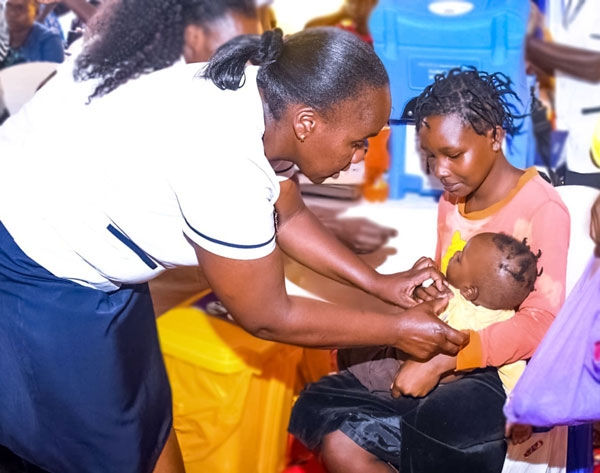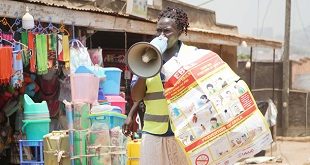
Kampala, Uganda | THE INDEPENDENT | The Ministry of Health has indicated that it will proceed with the planned vaccination against Malaria despite the sudden freeze of funding from the United States Agencies for International Development-USAID.
Despite the sudden freeze of funding from the United States for International Development-USAID, the Ministry of Health has announced that it will proceed with the planned vaccination program against Malaria.
The Ministry of Health planned to start administering the novel R21 malaria vaccine to children under two years old to boost their immunity against one of the most dangerous diseases contributing to their mortality.
According to the design, the vaccination is scheduled to begin on April 01st this year, when inoculation will be administered to children in four dosages; at six, seven, eight and eighteen months of age.
Doctor Jane Irene Nabakooza, the Ministry of Health’s Technical Lead for Malaria Chemoprevention and Vaccines, says that despite the overriding consequences and disruptions to the implementation of various health programs caused by the USAID funding freeze, the rollout of malaria vaccination will proceed as scheduled.
Speaking to Uganda Radio Network on the sidelines of stakeholders’ engagement aimed at improving community vaccine adoption, Dr Nabakooza explained that the Ministry has planned to operate within the existing health services delivery structure to administer the vaccine to the intended beneficiaries.
She observes that because the country had already been booked for at least 3 million malaria vaccine dosages from the Global Vaccines Initiate-GAVI and other joint international partnerships, the vaccination program may not be severely affected by the USAID funding freeze.
“A decision was taken that we are not rolling out a mass campaign as it has been with other vaccines, such as Yellow Fever, Measles and Rubella, and Hepatitis B among others. We have planned to integrate the Malaria vaccines in the routine children’s immunization schedule,” she said.
Her assurance comes shortly after various US-funded health programs implementing partners that include among others Makere University and Uganda Medical Association, raised alarm over the continuity of some critical programs after the funds’ suspension, announced in January.
As a long-term remedy, Dr Nabakooza indicates that Uganda is counting on the prospective capacities the East African Community member states are building to manufacture critical drugs and vaccines.
She is optimistic that the African countries are gradually progressing in their vaccines and drugs scientific innovations, which will eventually end the overdependence on the Western giants.
For instance, according to the October 2024 report by the Program for Appropriate Technology in Health, the different actors which include; the Africa Centres for Diseases and Control and Prevention-Africa CDC, the Clinton Health Access Initiative-CHAI have so built some tremendous capacities in Africa to locally manufacture at least 60 percent of Africa’s vaccine needs by 2040.
****
URN
 The Independent Uganda: You get the Truth we Pay the Price
The Independent Uganda: You get the Truth we Pay the Price



